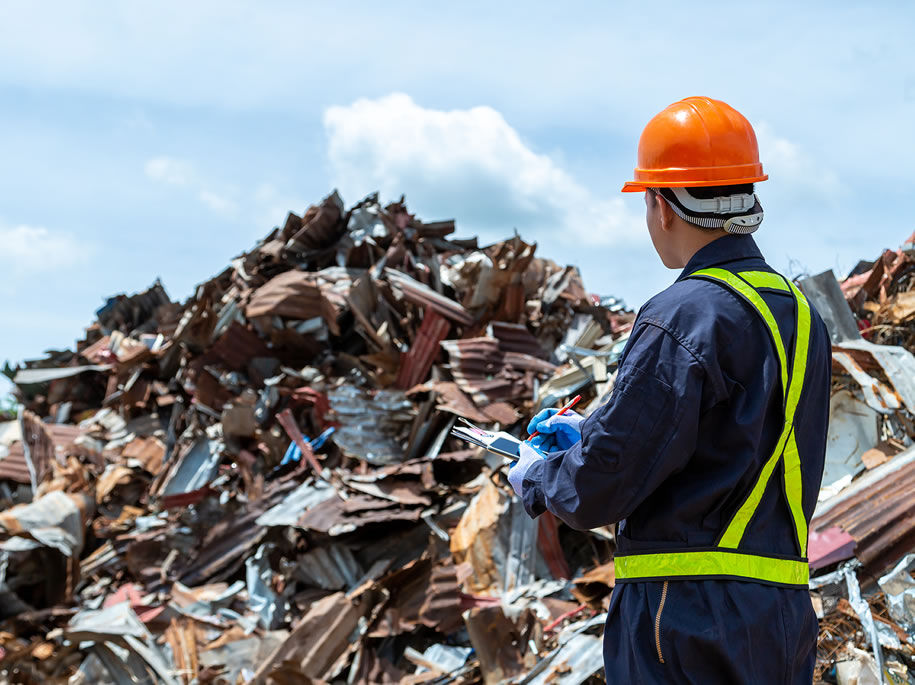

APR 18, 2022
Metals are a vital component of nearly every product made today, and that means a lot of parts to sort through before finding the one you need. Metal is everywhere, but sorting through different types is confusing and time-consuming. The cost of scrap metal is constantly fluctuating due to several factors, and it's hard to know what price to expect when you call around for price quotes. Not all scrap metal companies are the same, but RCM Recycling monitors the market and ensure that you get the best possible price when you bring in your scrap metal.
At RCM Recycling, we monitor the market and ensure that you get the best possible price when you bring in your scrap metal. As part of our service, we keep a pulse on the market and provide you with regular updates on the scrap metal market to rest assured you're getting good advice and paying a fair price for your scrap metal recycling.
RCM Recycling is a scrap metal company that can help you find quality scrap metal at the right price! We've got years of experience in scrap metal recycling, so we know this industry's ins and outs. Our staff can help you navigate local regulations and make sure you get a fair deal for your metal.
The most important factors for getting top dollar for your material are the quality and quantity of your scrap. Higher grades of metal will always fetch higher prices than lower grades, regardless of the amount. Also, if you have a large volume (truckload) or high quality (copper tubing), chances are better that you'll be able to negotiate a better price.
Another factor that affects scrap metal prices is market volatility. Scrap metal prices fluctuate up and down like other commodities and can be affected by global economic conditions. For example, demand for steel in China and other developing nations can drive steel prices higher, driving the demand for scrap metal higher. This tends to push up the price paid by recyclers for all kinds of ferrous metals.
The location of your scrap metal may also affect the price. For example, your scrap metal prices may be slightly lower than those quoted above if you are outside of the United States and Canada. Additionally, in the U.S., prices can vary significantly by region. If you live near a major city or industrial area, you may get paid more for your scrap metals than someone in a less populated area. For example, if you live in New York City, you might be able to get $160 per ton for No. 1 copper; but in Indiana, you could only get $85 per ton for the same type of copper.
Scrap metal prices tend to rise and fall with the seasons. Prices usually peak during spring and summer because the construction industry is more active. When construction slows down, scrap metal prices tend to drop during winter.
Commodity pricing is another external factor that affects scrap metal prices. Commodities are raw materials used to produce goods, such as copper, aluminum, and steel. When commodities rise in price, so do scrap metal prices; scrap metal prices also tend to drop when commodities fall in price.
International trade can affect the value of scrap metal by changing the demand for particular metals or changing supplies' availability. Demand for a specific type of metal may decrease if new technologies reduce demand or if there are changes in global trade that make importing or exporting more difficult. Similarly, supply may decrease due to political or economic events, such as shipping delays or taxes. As with any other commodity, changes in demand or supply will affect the value of all metals being traded.
The cost of producing a metal affects its price. The cost of producing a product depends on the market price for the metal, costs associated with mining the metal, and the cost of any processing that must take place to turn raw ore into finished metal. If there is an excess supply of metal relative to demand, prices will fall until there is no longer an excess supply, and production will slow down as it becomes more expensive. Conversely, when demand exceeds supply, prices will rise, and production will increase until supply equals demand.
When you're done with an old appliance, you can donate it, but other recycling options don't involve the landfill. Have you ever wondered what they do there if you drive past a scrap metal yard? Perhaps consider a different alternative to the trashcan-it's better for the environment and even puts money in your pocket!
Call RCM Recycling today!